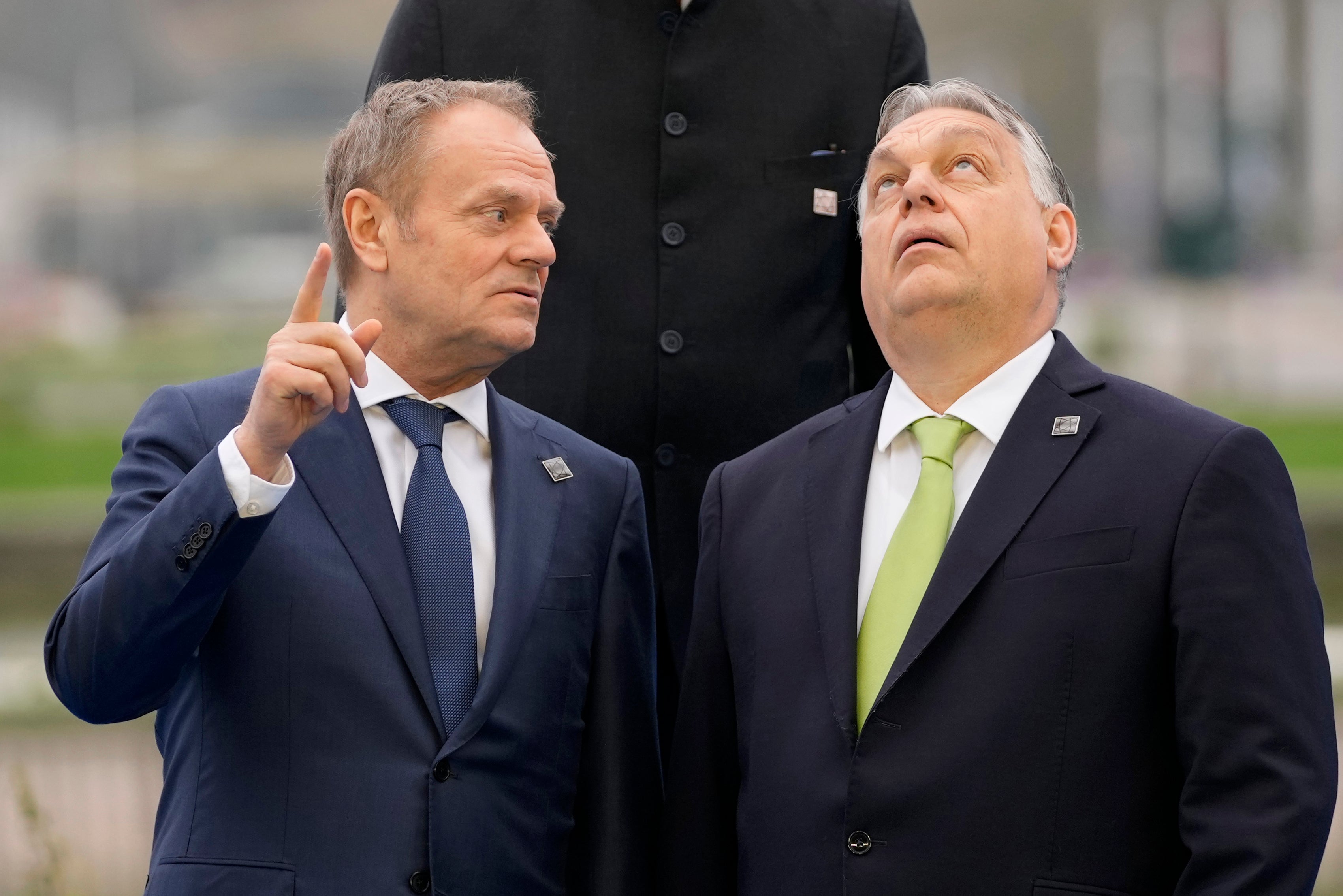A diplomatic spat erupts between Hungary and Poland over conflicting views on Russia
A diplomatic spat has erupted between Poland and Hungary that lays bare the deep tensions between two nations — both allies in NATO and the European Union — with dramatically different approaches to Russia at a time of war in Ukraine

A diplomatic spat has erupted between Poland and Hungary that lays bare the deep tensions within Europe over how to deal with with Russia when it is waging war on Ukraine.
Poland, like Germany, France and most other European nations, is a staunch ally of Ukraine while Hungary’s populist Prime Minister Viktor Orbán is widely considered to have the warmest relations with the Kremlin among all EU leaders.
The Polish government has been openly critical of Hungary for its stance. The spat erupted when Orbán lashed out at Poland over the weekend.
“The Poles are pursuing the most sanctimonious and the most hypocritical policy in the whole of Europe. They are lecturing us morally, criticizing us for our economic relations with Russia, and at the same time they are doing business with the Russians and buying oil indirectly, and running the Polish economy with it," Orbán said.
That triggered a denial and angry response from a Polish deputy foreign minister, Władysław Teofil Bartoszewski, who said Sunday: “We do not do business with Russia, unlike Prime Minister Orbán, who is on the margins of international society — both in the European Union and NATO.”
Poland was once dependent on Russian energy sources, but has been working for years to wean itself off Russian oil and gas. After Russia's full-scale invasion of Ukraine, Poland decided to end its Russian oil imports.
Magda Jakubowska, vice president of Visegrad Insight, a policy journal focused on Central Europe, said Poland might still have some Russian oil in reserves from past deliveries, but that it no longer imports oil from Russia. The Druzhba pipeline, which brought oil from Russia to Poland, “is no longer working,” she said.
About 50% of Poland's imports now come from Saudi Arabia and some from Norway, she said. She added that Poland exchanges some oil with Romania, where possibly some of the oil could be indirectly traced to Russia, but that it would be an insignificant amount.
A year ago Orbán could have made his claim, but not now, she said. “Maybe he hasn’t been updated," Jakubowska said.
Bartoszewski added that Orbán should join a union with Putin and even suggested he should leave Western organizations. His comments were reported by the Polish state news agency PAP.
Hungary has found itself isolated in the EU due to its rogue approach to Russia, and friendliness to China as well. Top EU officials have been boycotting informal meetings hosted by Hungary, which now holds the EU’s rotating presidency.
“If you don’t want to be a member of a club, you can always leave,” Bartoszewski said. “I don’t really understand why Hungary wants to remain a member of organizations that it doesn’t like so much and which supposedly treat it so badly.”
The digs didn't end there.
Hungary’s Foreign Minister Péter Szijjártó shot back at Bartoszewski on Facebook by saying: “For a long time we tolerated the provocations and hypocrisy of the current Polish government with the intention of preserving the Polish-Hungarian brotherhood, but we have had enough.”
Poland and Hungary historically have strong ties.
Orbán got along very well with the conservative populists who governed Poland from 2015-2023 due to their shared views on migration and the EU. They both opposed allowing migrants from the Middle East and Africa into Europe. And both governments accused the EU of seeking to take away powers from the nation states.
Those ties only began to sour when Russia invaded Ukraine, aggression that Poles also feel as an existential threat in the region. They have gotten worse since a pro-EU government took over in Warsaw under Prime Minister Donald Tusk in December.
___ Domotor reported from London.
Bookmark popover
Removed from bookmarks